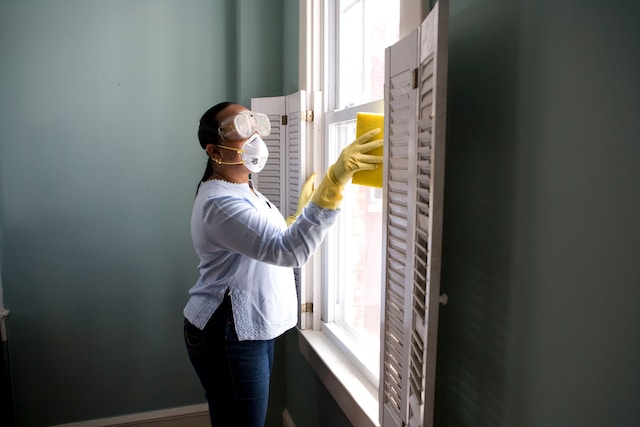Why a Pest-Free Home is Essential for Family Health

A safe and healthy home is paramount for the well-being of your family. One often underestimated yet critical aspect of maintaining a healthy living environment is ensuring that your home remains free from pests. From insects like cockroaches and ants to rodents such as rats and mice, pests can wreak havoc on both your living space and your family’s health. In this article, we’ll delve into the reasons why a pest-free home is essential for the health of your family, exploring the various risks associated with pest infestations and the steps you can take to safeguard your home.
The Hidden Health Risks of Pest Infestations
Pest infestations pose a myriad of health risks that can impact your family’s well-being. Insects and rodents are carriers of various diseases, bacteria, and allergens that can easily be transmitted to humans. For instance, cockroaches are known to carry bacteria such as E. coli and Salmonella, which can contaminate surfaces and food, leading to food poisoning and gastrointestinal infections. Similarly, rodents can spread diseases like Hantavirus through their urine and droppings, which, when inhaled, can lead to severe respiratory issues.
Beyond direct disease transmission, pests can exacerbate allergies and asthma symptoms, particularly in children. Dust mites, commonly found in bedding and upholstered furniture, produce allergens that can trigger allergic reactions and asthma attacks. Furthermore, the shed skin and body parts of pests like cockroaches and rodents can become airborne, contributing to indoor air pollution and respiratory distress. Maintaining a pest-free environment is, therefore, vital in reducing the risk of these health complications.
Safeguarding Your Home and Family
There are several proactive measures you can take to ensure your home remains free from pests and the associated health hazards:
Regular Cleaning and Maintenance: A clean home is less attractive to pests. Regularly clean up crumbs, spills, and food debris, and ensure that garbage is properly sealed and disposed of. Regular sweeping, vacuuming, and dusting can help eliminate potential hiding spots for pests.
Sealing Entry Points: Pests often enter homes through gaps and cracks in walls, windows, and doors. Inspect and seal these entry points to prevent easy access for pests. Installing door sweeps and window screens can also be effective in keeping pests out.
Proper Food Storage: Store food items in airtight containers to prevent attracting pests like ants and rodents. Pet food should also be stored securely, as it can be a magnet for pests.
Moisture Control: Many pests thrive in damp environments. Repair leaks promptly, ensure proper ventilation, and use dehumidifiers in areas prone to moisture buildup, such as basements and bathrooms.
Professional Pest Control: Regular professional pest inspections and treatments can help prevent infestations before they become severe. As explained by a team from Harvey Pest Control company, pest control experts can identify vulnerable areas and apply safe and effective treatments to keep pests at bay. These regular inspections and treatments not only protect properties from damage but also contribute to maintaining a healthy and hygienic environment for occupants.
The Psychological Impact of Pest Infestations
Beyond the tangible health risks, pest infestations can also have a profound impact on the mental well-being of your family members. Living in a space invaded by pests can cause feelings of anxiety, stress, and a decreased sense of comfort. The constant worry about the presence of pests and the potential for disease transmission can lead to heightened stress levels, which in turn can affect sleep patterns and overall quality of life. Children, in particular, are susceptible to the psychological effects of pest infestations, as they may develop fears and anxieties related to their living environment. Creating a pest-free home not only ensures physical health but also contributes to a more positive and serene mental state for your family.
Preserving the Structural Integrity of Your Home
Pests can cause extensive damage to the structural integrity of your home, leading to costly repairs and compromised safety. Termites, for instance, are notorious for silently eating away at wooden structures, weakening them over time. Rodents are known to gnaw on electrical wires, which not only poses a fire hazard but also necessitates expensive rewiring efforts. Additionally, pests like carpenter ants and certain types of beetles can damage the structural wood of your home, potentially leading to structural instability. By preventing pest infestations, you not only safeguard your family’s health but also protect the investment you’ve made in your home.
Promoting a Sense of Comfort and Well-Being
A pest-free home fosters an environment of comfort and well-being, where your family can thrive and enjoy quality time together. Imagine a space where you can relax without the worry of encountering pests or their traces. A pest-free home promotes better sleep, improved concentration, and an overall sense of security. Whether it’s cooking a meal in a clean kitchen, playing games with your children in the living room, or enjoying a peaceful night’s sleep, a pest-free environment enhances the quality of your family’s daily life. It cultivates a space where memories are made and cherished, free from the disruptions and discomfort that pests can bring.
Environmental Considerations and Eco-Friendly Pest Control
While eliminating pests is essential, it’s equally important to consider the environmental impact of pest control methods. Traditional chemical pesticides can have adverse effects on ecosystems, non-target organisms, and even human health if not used responsibly. Thankfully, eco-friendly pest control options have emerged as a safer alternative. Biological control, which involves introducing natural predators of pests, can help maintain a balance in the ecosystem. Additionally, using botanical repellents, sealing entry points with physical barriers, and employing traps are effective methods that minimize the use of harmful chemicals. By choosing eco-friendly pest control strategies, you contribute to the health of not only your family but also the broader environment.
Educating Your Family about Pest Prevention
Empowerment through knowledge is key to maintaining a pest-free environment. Educate your family members, especially children, about the importance of pest prevention and the actions they can take to contribute. Teach them about proper food storage, the significance of cleanliness, and how small actions like keeping doors closed can make a big difference. Engaging children in these discussions not only instills responsible habits but also helps them develop a sense of ownership over the well-being of their living space. Knowledgeable family members are more likely to take proactive steps to prevent pests, creating a collaborative effort towards a healthier home.

Long-Term Benefits and Cost Savings
Investing time and resources in maintaining a pest-free home yields substantial long-term benefits, including cost savings. While professional pest control services and preventive measures might involve an initial expense, they are far more economical than dealing with the aftermath of a severe infestation. The costs associated with repairing structural damage, replacing contaminated food, and addressing health issues can far outweigh the investments made in preventive measures. By consistently practicing pest prevention, you not only save money but also preserve the value of your property and ensure a higher quality of life for your family.
In conclusion, a pest-free home is not only a sanctuary for your family’s health but also a reflection of your commitment to their overall well-being. By considering the environmental impact of pest control, educating your family, and recognizing the long-term benefits, you embrace a holistic approach to creating a safe and harmonious living environment. The journey toward a pest-free home is an investment in health, happiness, and sustainability—a testament to your dedication to providing the best for your loved ones. Through conscientious efforts, you can truly make your home a place where health, comfort, and peace flourish.





